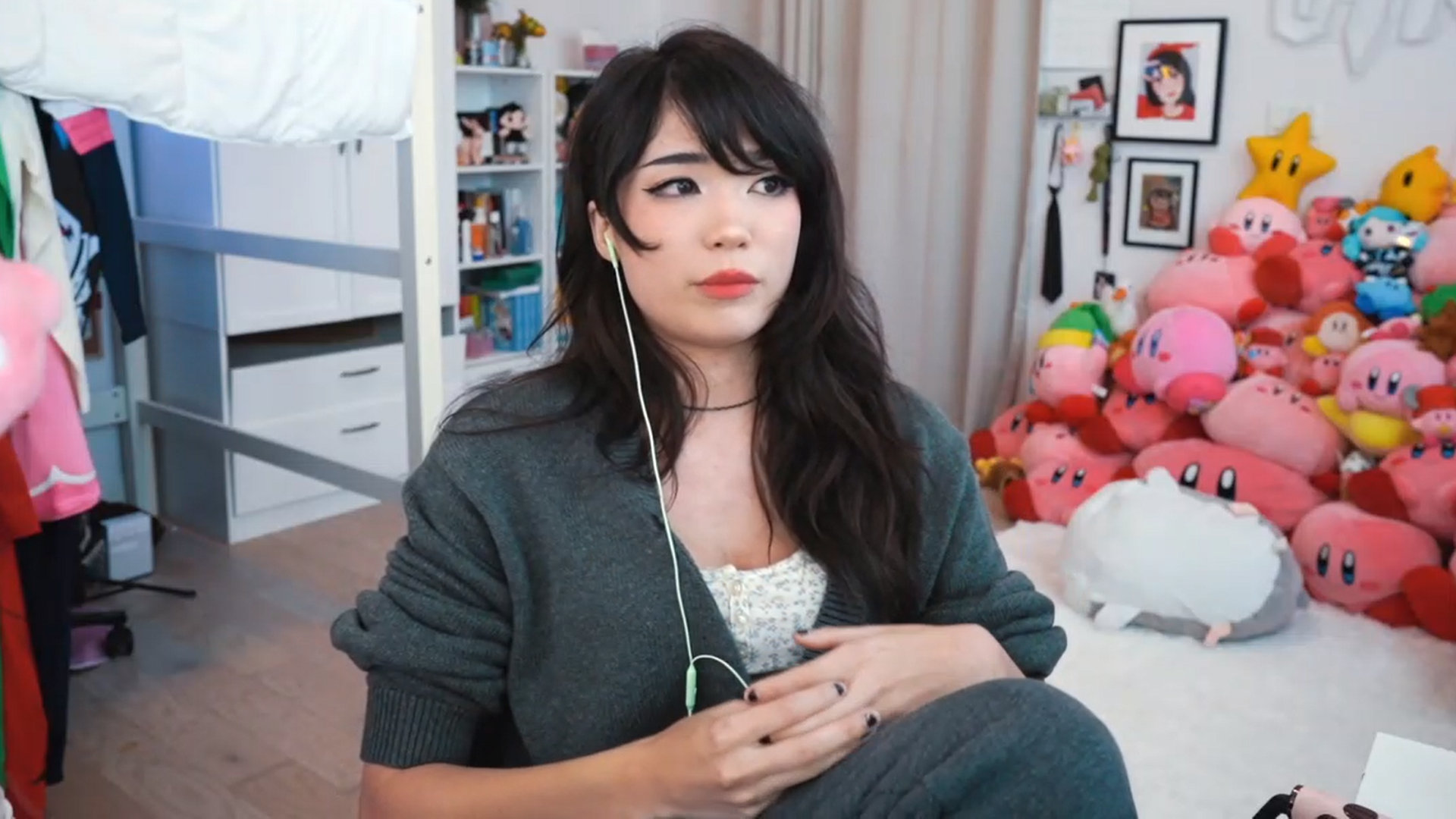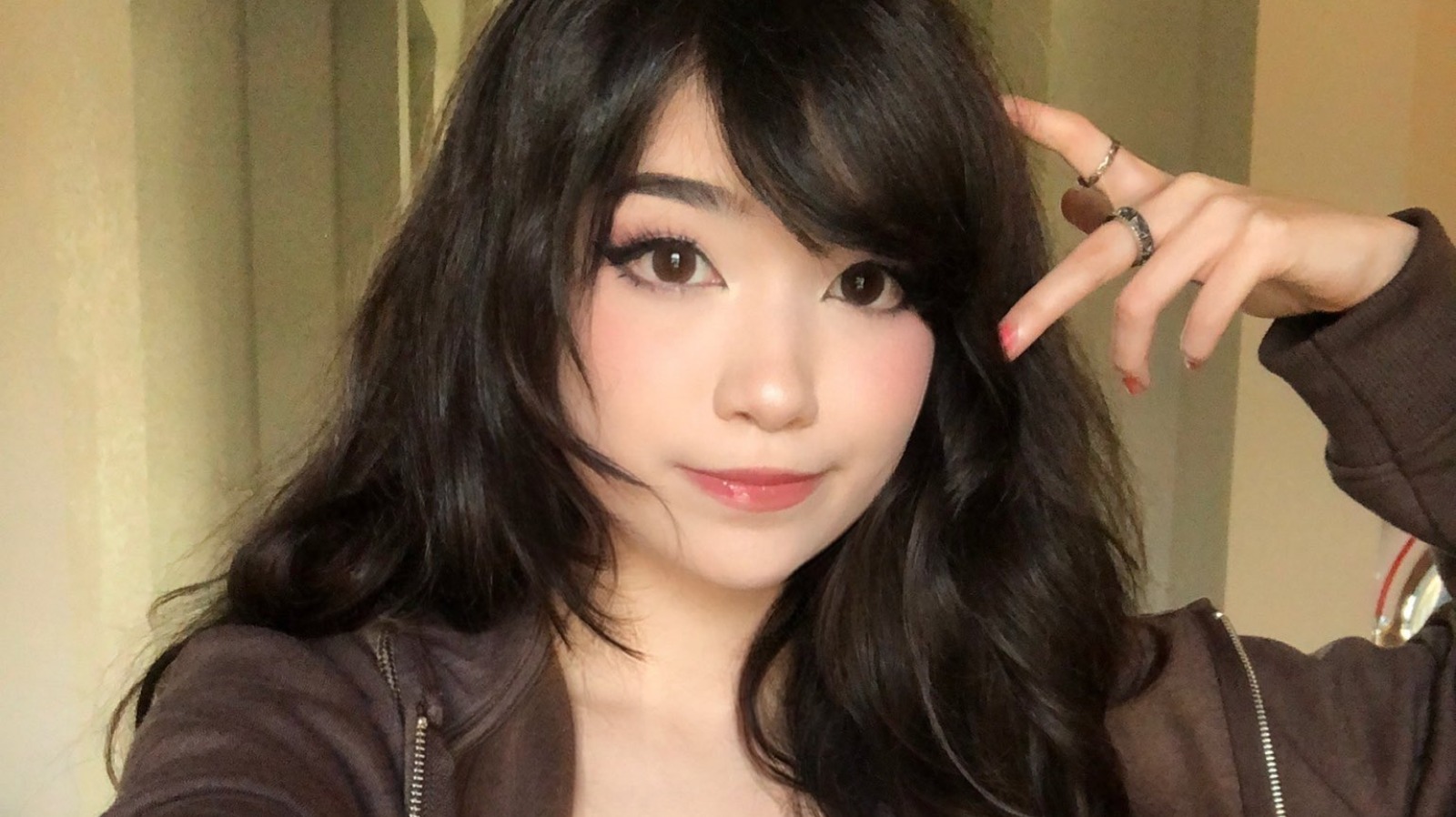There's been a lot of talk lately, it seems, about something called "emiru nude ai," and it's a topic that really gets people thinking about online spaces and the kind of images we see. This phrase, which has been popping up in conversations, points to a much bigger discussion about how artificial intelligence is changing the internet, particularly when it comes to public figures and their personal images. It’s a pretty serious matter, and frankly, it asks us to consider what's real and what's not in our digital lives.
For many, the idea of AI-generated content, especially images, feels a bit unsettling. When it touches on individuals like Emily Beth Schunk, known professionally as Emiru, a popular American online streamer, YouTuber, and cosplayer, it becomes even more personal. She's someone who shares her life and creativity with a large audience, and so, you know, when something like "emiru nude ai" comes up, it naturally raises questions about privacy and consent in the public eye.
This discussion isn't just about one person; it's a window into the broader challenges that creators and their communities face in the digital age. It's about protecting people, supporting ethical content creation, and, basically, making sure our online world stays a safe and respectful place for everyone. So, let's unpack this a little, shall we, and figure out what it all means.
- Two Babies One Fox
- Camilla Araujo Porn Leaks
- 4 Girls One Fingerprint Actresses Names
- Teach Me First Free
- Sowte
Table of Contents
- Emiru: A Look at the Person Behind the Stream
- The Rise of AI-Generated Content and What 'Emiru Nude AI' Suggests
- Spotting the Fakes: How to Tell if an Image is AI-Generated
- Protecting Digital Identity and Supporting Creators
- Frequently Asked Questions About Emiru and AI Content
- Moving Forward with Digital Literacy
Emiru: A Look at the Person Behind the Stream
Before we get too deep into the AI aspect, it's pretty important to remember who Emiru is, the actual person. Emily Beth Schunk, born on January 3, 1998, has truly made a name for herself as an American online streamer, a YouTuber, and a cosplayer. She streams live over at twitch.tv/emiru, and, you know, she’s built a really dedicated following.
Her content often revolves around her deep interest in gaming, which is something that really sets her apart from many other female personalities online. She's not typically involved in fashion, for instance, but rather focuses on her passion for games. Her official subreddit and TikTok presence, where she has over 27.1 million likes, show just how much people connect with her authentic personality. She's known as a "rabbit dealer, Kirby hoarder, 450 bpm connoisseur, professional soap taster," and, basically, she just seems like a genuinely fun person.
She even hosts events, like the Emiru Cosplay Contest, which recently featured big names such as Jessica Nigri and Nmplol, drawing in many viewers. This just goes to show her impact. Recently, too, there was some talk about her removing One True King (OTK) branding from her X account, which got people wondering if she was moving on to new things. All of this, you see, paints a picture of a very active and popular online figure, which is why discussions around "emiru nude ai" are so relevant to her public image.
Personal Details and Bio Data
| Detail | Information |
|---|---|
| Full Name | Emily Beth Schunk |
| Professional Name | Emiru |
| Date of Birth | January 3, 1998 |
| Nationality | American |
| Occupation | Online Streamer, YouTuber, Cosplayer |
| Primary Platform | Twitch (twitch.tv/emiru) |
| Known For | Gaming interest, cosplaying, unique personality |
| TikTok Followers | Over 27.1 million likes |
The Rise of AI-Generated Content and What 'Emiru Nude AI' Suggests
The phrase "emiru nude ai" points directly to the growing trend of using artificial intelligence to create images, particularly those that are manipulated or fabricated. This is a very real challenge in our digital age. When people search for this, they are likely looking for, or have encountered, images that appear to be of Emiru but were, in fact, generated by AI. These images are not real, and they do not represent actual content from the streamer herself, which is, you know, a pretty important distinction to make.
This kind of content often falls under the umbrella of "deepfakes" or AI-generated imagery, where sophisticated computer programs are used to create highly realistic, yet entirely fake, pictures or videos. It’s a concerning development because, as a matter of fact, these tools can be used to create content without a person's permission, and that's a huge problem. It really highlights the ethical dilemmas that come with powerful new technologies, especially when they are used to misrepresent individuals.
The existence of such search terms and content suggests a broader curiosity, or perhaps a lack of awareness, about how AI can be misused. It's a clear signal that we need to talk more openly about digital literacy and the importance of critical thinking when we see things online. So, basically, understanding what this phrase means is the first step in addressing the bigger issues at play.
How This AI Content Gets Made
Creating AI-generated images, like those suggested by "emiru nude ai," usually involves a type of artificial intelligence called a generative adversarial network, or GAN. These systems are, you know, quite clever. One part of the AI creates images, trying to make them look as real as possible, while another part tries to figure out if the images are fake. They basically "compete" against each other, and over time, the image creator gets incredibly good at making convincing fakes.
To make an image of a specific person, the AI is fed a lot of real pictures of that person. It then learns their features, their expressions, and how they look. After that, it can create new images that appear to be of that person, even putting them in situations or outfits they've never actually been in or worn. This process is, frankly, very powerful, and it's why these fake images can look so believable to the casual observer.
The problem, of course, is that this technology can be used for harmful purposes, like creating non-consensual images. It's a serious invasion of privacy and can cause real distress to the individuals involved. So, you know, understanding the technical side helps us grasp the potential for misuse, and why we need to be vigilant.
Why This Is a Big Deal for Everyone
The creation and spread of AI-generated images, especially those like "emiru nude ai," have some really big implications, not just for the individuals targeted, but for all of us. First off, there's the huge ethical concern of consent. When images are made without a person's permission, it's a violation of their privacy and their right to control their own image. This can cause immense personal harm, affecting reputation and emotional well-being, which is, you know, a terrible thing to happen to anyone.
Then, there's the broader issue of trust in digital media. If we can't tell what's real and what's fake, it makes it much harder to believe anything we see online. This can lead to a general sense of distrust, making it tougher to share information, communicate, and, basically, exist in online communities. It erodes the very foundation of how we interact on the internet, and that's a pretty scary thought.
Also, it creates a dangerous precedent. If this kind of content becomes normalized, it could encourage more malicious acts against public figures and even everyday people. It’s a clear call for stronger protections, better digital education, and, in some respects, a more responsible approach to how AI tools are developed and used. We need to collectively figure out ways to push back against this, you know, for the good of everyone.
Spotting the Fakes: How to Tell if an Image is AI-Generated
Given how realistic AI-generated images can be, it's becoming more important to know how to spot them. There are often subtle clues, you know, if you look closely. One common giveaway is in the details, especially around hands, fingers, and ears. AI models sometimes struggle with these areas, making them look a bit distorted, too many fingers, or just plain unnatural. So, paying attention to those small parts can really help.
Another thing to look for is strange backgrounds or inconsistencies in the environment. AI might generate blurry or oddly patterned backgrounds, or objects that don't quite make sense in the scene. Lighting can also be a hint; sometimes, the light source in an AI image just doesn't seem quite right, or shadows might fall in odd ways. These are, basically, little glitches that the AI hasn't quite perfected yet.
Also, consider the overall context. Does the image seem out of character for the person? Is it appearing on an unusual website or from an unknown source? If something feels off, it's a good idea to be skeptical. You can also use reverse image searches to see where else the picture has appeared. While not foolproof, these steps can help you be a more discerning viewer online. Learn more about digital verification methods on our site.
Protecting Digital Identity and Supporting Creators
Protecting digital identity in an age of AI-generated content is, frankly, a challenge, but it's one we need to address head-on. For individuals like Emiru, whose lives are very much online, the threat of manipulated images is very real. It's about ensuring that people have control over their own likeness and that their privacy is respected, even when they choose to share parts of their lives with the public. This means advocating for stronger ethical guidelines and legal frameworks around AI use.
For creators, it's also about having the tools and support to deal with such issues. This could involve platforms being more proactive in removing harmful AI content or providing resources for creators to report and address these violations. It’s a collective effort, really, to build a safer online environment where creativity can flourish without the constant worry of misuse. We, as users and communities, also play a big part in this, you know, by promoting responsible behavior.
Ultimately, it’s about fostering a culture of respect and awareness. When we understand the risks and know how to respond, we can better protect ourselves and support those who are affected. This kind of vigilance helps to ensure that the internet remains a place for genuine connection and expression, rather than a breeding ground for harmful fabrications. So, it’s a shared responsibility, you see, to keep things on the up and up.
Advice for Fans and Viewers
For fans and viewers, your role in addressing issues like "emiru nude ai" is, actually, quite important. The first thing to do is to be a critical thinker. If you see an image that looks suspicious or makes you feel uneasy, don't immediately believe it or share it. Take a moment to consider its source and look for those tell-tale signs of AI manipulation we talked about earlier. Your skepticism is a powerful tool, you know, in slowing the spread of misinformation.
Secondly, support the creators you admire by getting your content from official sources. Follow Emiru on her official Twitch channel, her YouTube, and her verified social media accounts. This way, you know you're seeing her real content, directly from her. Avoiding unofficial or shady websites helps to cut off the demand for, and spread of, fake content. It’s a simple but very effective way to show your support, and, basically, to do the right thing.
Lastly, if you do come across harmful AI-generated content, report it to the platform where you found it. Most social media sites and streaming platforms have ways to report content that violates their terms of service. By taking action, you help protect not only the individual involved but also the wider online community. It's a small step, but, you know, it makes a big difference in keeping the internet a safer place for everyone. You can also learn more about online safety and digital citizenship.
What Creators Can Do
For creators themselves, facing the possibility of AI-generated content like "emiru nude ai" can feel pretty overwhelming, but there are steps that can be taken. One important thing is to be proactive about digital security. This means using strong, unique passwords, enabling two-factor authentication on all accounts, and being very careful about what links you click or what software you download. Protecting your own accounts makes it harder for malicious actors to get access to your real images, which are often used to train AI models, you know.
Another helpful step is to regularly monitor your online presence. Set up Google Alerts for your name or professional handles, and periodically search for your name on various platforms. This way, you might catch early instances of AI-generated content or deepfakes and can take action more quickly. It's about staying aware of what's out there, and, basically, being on top of things.
Finally, consider connecting with legal experts or organizations that specialize in digital rights and online harassment. They can offer advice on how to get harmful content removed and, perhaps, pursue legal action if necessary. Building a strong support network and knowing your options is, frankly, very empowering in these situations. It’s a tough situation, but, you know, creators don’t have to face it alone.
Frequently Asked Questions About Emiru and AI Content
People often have questions about this topic, so here are a few common ones, you know, to help clear things up.
What exactly is "emiru nude ai" referring to?
The phrase "emiru nude ai" typically refers to images or videos that appear to depict Emiru, but which have been created or manipulated using artificial intelligence technology. These are not real images of Emiru; they are fabricated. It's important to understand that such content is often created without the consent of the person depicted, and, basically, it’s a form of digital manipulation.
Is AI-generated content of real people legal?
The legality of AI-generated content, especially deepfakes that depict real people without their consent, is a complex and evolving area. Many jurisdictions are starting to pass laws specifically against the creation and distribution of non-consensual deepfakes, particularly those of a sensitive nature. However, laws vary widely by region, and, you know, it's a rapidly developing legal landscape. Generally, it's considered unethical and harmful.
How can I support Emiru and other creators against this type of content?
You can support Emiru and other creators by always seeking out their official content on their verified platforms, like Twitch or YouTube. Avoid engaging with or sharing any suspicious or unverified images. If you see harmful AI-generated content, report it to the platform immediately. Spreading awareness about digital literacy and the dangers of deepfakes also helps, and, basically, it makes a big difference.
Moving Forward with Digital Literacy
The conversation around "emiru nude ai" truly highlights the urgent need for greater digital literacy for everyone. It's not just about knowing how to use a computer or a phone; it’s about understanding the complex ways information, and misinformation, moves online. It means learning to question what we see, to verify sources, and to recognize when something just doesn't feel right. This kind of critical thinking is, frankly, more important than ever in our increasingly digital world.
As AI technology continues to advance, we'll likely see more sophisticated forms of generated content. This means our ability to discern truth from fabrication will need to keep pace. It’s a continuous learning process, you know, for all of us. By staying informed, by being cautious, and by promoting ethical online behavior, we can collectively work towards a safer, more respectful internet. Let's all commit to being more mindful digital citizens, because, basically, it helps everyone.
Related Resources:



Detail Author:
- Name : Prof. Dasia Romaguera Sr.
- Username : raven39
- Email : enrique.moen@abshire.com
- Birthdate : 1997-09-06
- Address : 795 Orland Corner Apt. 807 Ornview, GA 44626
- Phone : +1.631.818.2548
- Company : McDermott LLC
- Job : Engraver
- Bio : Deserunt harum qui animi voluptas id. Qui maxime vitae hic quia eligendi sunt. Atque qui deserunt corrupti enim debitis suscipit qui.
Socials
twitter:
- url : https://twitter.com/kassandraglover
- username : kassandraglover
- bio : Ut eum illum molestiae animi qui laborum. Quos sed vitae natus et. Eveniet et ea unde est.
- followers : 6966
- following : 13
tiktok:
- url : https://tiktok.com/@kassandraglover
- username : kassandraglover
- bio : Iusto praesentium quaerat blanditiis id quasi neque.
- followers : 4917
- following : 1767